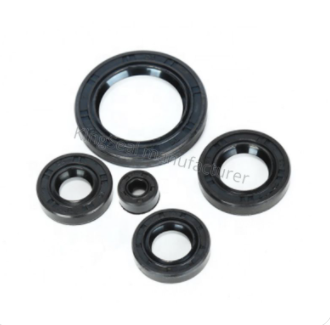Demystifying Rubber Grommets: Understanding Their Origins, Significance, and Impact
Rubber grommets are essential components in various industries, serving multiple purposes in engineering, manufacturing, and everyday applications. Essentially, a rubber grommet is a small, ring-like device made from rubber or similar materials, designed to protect and reinforce holes or openings in various materials. These grommets often feature a central hole through which cables, wires, or tubing can pass, providing insulation, cushioning, and strain relief.
Originating from the word "grommet," which historically referred to a type of ship's porthole, the concept of using a ring-shaped object to reinforce an opening has been around for centuries. However, the modern rubber grommet as we know it today emerged with the advancements in manufacturing processes and materials in the early 20th century.
Initially, rubber grommets found their primary application in the automotive industry, where they were used to protect wiring and cables from abrasion and damage caused by vibrations. As technology progressed, their utility expanded into other sectors, including electronics, plumbing, and general machinery.
The significance of rubber grommets lies in their ability to provide a secure and insulated passage for various elements while also offering protection against wear and tear. In automotive applications, for instance, grommets prevent wires and cables from rubbing against sharp edges or metal surfaces, reducing the risk of short circuits and electrical failures. In household items like desk grommets, they facilitate the organization of cables and prevent them from tangling, enhancing safety and aesthetics.
Moreover, rubber grommets contribute to improved product durability and longevity by minimizing stress concentrations around openings. By evenly distributing mechanical loads and dampening vibrations, they help prevent premature failure of components, thereby reducing maintenance costs and enhancing overall performance.
In recent years, the widespread adoption of rubber grommets in various industries has led to innovations in design and materials, catering to specific application requirements. Advanced polymers and elastomers have been developed to withstand extreme temperatures, chemicals, and environmental conditions, further expanding the scope of grommet applications.
Furthermore, the growing emphasis on sustainability and eco-friendly manufacturing practices has spurred the development of biodegradable and recyclable grommet materials, aligning with global efforts towards a greener future.
In conclusion, rubber grommets play a crucial role in modern engineering and manufacturing, offering practical solutions to challenges related to insulation, protection, and structural reinforcement. Their evolution from simple rubber rings to sophisticated components reflects advancements in technology and materials science, while their widespread use underscores their importance in diverse industries. As we continue to innovate and adapt to evolving needs, rubber grommets will remain indispensable elements in ensuring the reliability and longevity of various products and systems.



